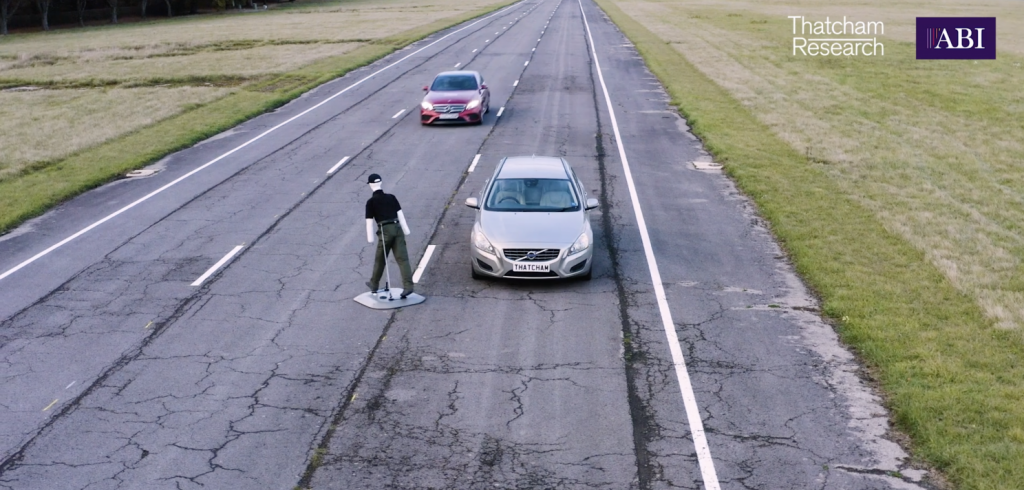UK-based security specialist Thatcham Research and the Association of British Insurers (ABI) are urging the UK government to revise its plans to introduce automated driving by way of automated lane keeping systems (ALKS) onto UK roads in early 2021 stating that it will put road users’ lives at risk.
The organizations believe the government should undertake further work with insurers and the automotive industry to ensure road safety is fully considered before introducing ALKS. They raise concerns around both the functionality of the technology and the regulations under which it will operate, which mean that it cannot replicate what a competent and engaged human driver can do and, in their opinion, is not safe enough to be classified as ‘automated driving’.
Pending the results of a safety consultation that recently ended, the UK government could allow ALKS to be the first automated driving technology on UK motorways up to speeds of 70mph from spring 2021. This is a significant step because it will mark the first time a driver can legally take their hands off the wheel and their eyes off the road and allow their vehicle to drive for them.
Thatcham says it has safety concerns about this plan because ALKS is largely based on current assisted driving technology. “The government’s plan threatens road safety,” Thatcham Research’s director of research, Matthew Avery, explained. “Motorists could feasibly watch television in their car from early next year because they believe their automated lane keeping system can be completely trusted to do the job of a human driver. But that’s not the reality. The limitations of the technology mean it should be classified as ‘assisted driving’ because the driver must be engaged, ready to take over.”
James Dalton, ABI director of general insurance policy, added, “The insurance industry is 100% committed to supporting the development of automated vehicles, which have the potential to dramatically improve road safety and revolutionize our transport systems. Vehicles equipped with an automated lane keeping system are a great step towards developing automated vehicles.
“However, drivers must not be given unrealistic expectations about a system’s capability. Thatcham Research has identified some concerning scenarios where ALKS may not operate safely without the driver intervening. We strongly believe the timings for the introduction of ALKS should be revised to prevent lives being put at risk.”
The scenarios that Thatcham identified, in which automated lane keeping system technology will not respond in the same way as a competent driver on a UK motorway, are:
Debris in the carriageway
Debris caused 11 serious accidents on UK motorways in 2019. Automated lane keeping system technology may not see this type of hazard and will continue in lane at its set speed, potentially causing a serious collision. An attentive driver, however, should recognize debris and attempt to move around it by safely changing lanes.
Pedestrian carriageway encroachment
Pedestrian casualties are increasing on UK motorways and accounted for 23% of killed and seriously injured (KSI) on those roads in 2019. If a pedestrian encroaches on the carriageway while emerging from a broken-down vehicle, a human driver would either slow to a safe speed or move out of lane to avoid conflict. An automated lane keeping system won’t be allowed to do this because it’s forced to stay in lane and so will continue at motorway speed toward the pedestrian, significantly reducing the ability to brake and avoid a collision.
Motorway lane closure
There were 70 accidents caused by cars driving along a closed lane – marked with a red ‘X’ – on smart motorways in 2019. Automated lane keeping systems may not recognize a closed lane and break the law. If the vehicle does recognize the closed lane, it can only stop in lane under the red ‘X’, creating an additional hazard.
“Current technology requires an attentive driver to be engaged so they can re-take control of the vehicle when required. Automated lane keeping system technology would need a quantum leap in development to be able to cope with these very real scenarios safely,” noted Avery. “With today’s radar sensors only able to monitor a relatively short distance up the carriageway and ALKS-equipped cars bound by legislation that will not allow them to change lane autonomously, it’s crucial that sensor performance moves on dramatically before a system can be classified as ‘automated’.”
The sensors contained within current assisted driving technology can only interpret scenes up to a distance of around 120m. At motorway speeds, that distance allows only four seconds to take back control and avoid an incident. Current studies suggest a driver needs more than 15 seconds to properly engage and react appropriately to a hazard.
To support the development of suitable technology, both bodies published a ‘Defining Safe Automated Driving’ document in 2019 that clearly outlined the 12 key principles that must be met to ensure a safe transition toward an automated driving future for all road users. The ALKS the government is proposing in 2021 only meet two of these 12 principles, thus failing to satisfy key safety criteria.
“Automated lane keeping system technology is not safe enough to be classified as ‘automated’,” Avery concluded. “We believe it should be regarded as ‘assisted’ technology because the driver needs to remain alert. The government’s proposed timeline for the introduction of automated technology must be revised. It simply isn’t safe enough and its introduction will put UK motorists’ lives at risk.”


